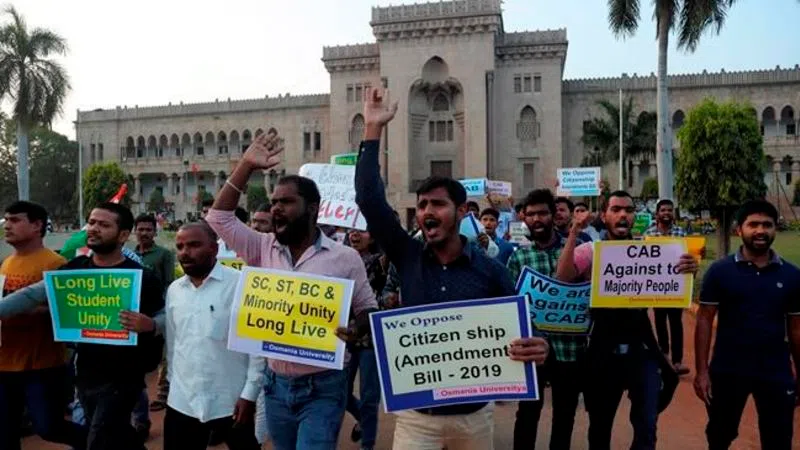
Protests of Indian law grow despite efforts to contain them
NEW DELHI — From campuses along India’s Himalayan northern border to its southern Malabar Coast, a student-led protest movement against a new law that grants citizenship on the basis of religion spread nationwide on Wednesday despite efforts by the government to contain it.
The law provides a path to citizenship for Hindus, Buddhists, Christians and other religious minorities who are in India illegally but can demonstrate religious persecution in Muslim-majority Bangladesh, Pakistan and Afghanistan. It does not apply to Muslims.
Critics say it’s the latest effort by Prime Minister Narendra Modi’s Hindu nationalist-led government to marginalize India’s 200 million Muslims, and a violation of the country’s secular constitution.
Modi has defended it as a humanitarian gesture, but on Wednesday, authorities tightened restrictions on protesters, expanding a block on the internet and a curfew in Assam, where protests since the law’s passage a week ago have disrupted life in Gauhati, the state capital. They also restricted assembly in a Muslim neighbourhood in New Delhi where demonstrators on Tuesday burned a police booth and several vehicles.


